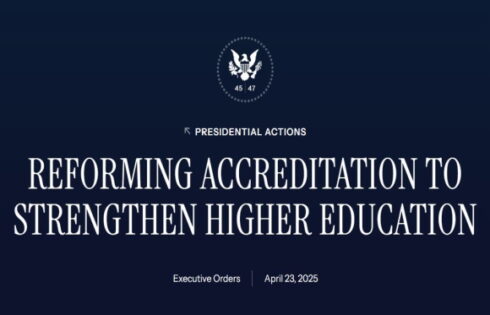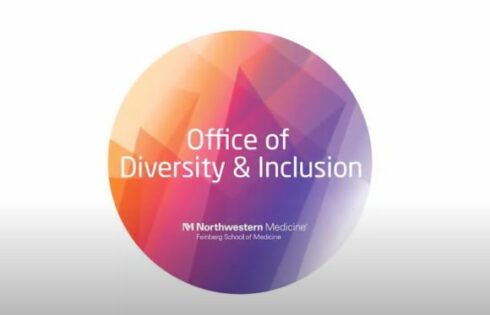
More colleges and universities in Texas appear to be finding creative ways to adhere to a new law that bans diversity, equity and inclusion offices — without fully getting rid of DEI in spirit.
UT Austin’s Division of Diversity and Community Engagement was renamed the Division of Campus and Community Engagement starting Jan. 1, the Austin American-Statesman recently reported.
The division’s website removed DEI terms and switched them out with words “focused on belonging and access for all,” it reported. The Gender and Sexuality Center was also renamed the Women’s Community Center, it added.
At the University of Houston, it closed its Center for Diversity and Inclusion and opened the Center for Student Advocacy and Community, reported Houston Public Media.
At the University of North Texas, “a new Center for Belonging and Engagement would be established to continue to promote inclusivity as the school’s multicultural center and pride alliance close,” reported the Texas Tribune.
At Lone Star College, which enrolled 70,000 students, its officials “simply renamed the Office of Diversity, Equity, and Inclusion to the Office of Culture and Engagement,” said an employee of the school who asked to remain anonymous in an email to The College Fix.
“The same DEI-trained and oriented staff populate that office across the system and the chief personnel reports directly to the chancellor. Seems to me they make a mockery of the new law and the legislators who passed it,” he said.
Public colleges and universities in Texas were forced to do away with their “Diversity, Equity and Inclusion” offices to stay in compliance with a state law passed last year that took effect Jan. 1.
But there is some concern on whether administrators are trying to circumvent the new law by merely changing the names of certain departments and transferring and renaming personnel.
“The UT-Austin administration has no intention of truly complying with SB 17,” one UT-Austin professor said in an email to The College Fix in July, after the law passed. “They will use whatever loopholes they can find to continue as much of the objectionable programming as possible, especially by hiding such programs as ‘teaching’ and ‘research,’ which were carved out as exceptions.”
For example, at UT-Austin, the formerly titled “Outreach & Inclusion” director in the university’s business school has been relabeled “Outreach & Scholarships.”
At Lone Star College, a two-year institution in the greater Houston area with seven campuses, its “Office of Culture and Engagement” states online that its vision is “to be a model educational institution recognized for providing innovative and transformative policies, practices and programming that eliminates barriers for students, employees, and the community.”
While the Office of Diversity, Equity, and Inclusion is no longer open, it still shows up in the school directory on the main website. When clicked on, the user is immediately rerouted to the “Culture and Engagement” page.
The words “equity and inclusion” also can both be found on the “Culture and Engagement” office’s main page.
Equity is also listed as a cultural belief on the “Welcome” page: “At Lone Star College our cultural beliefs are centered around: One LSC. Student Focused. Own It. Advance Equity. Cultivate Community. Choose Learning. All these cultural values are embedded in the work of this office.”
Its chief officer, Carlecia Wright, mentions in her bio her extensive experience with DEI-related topics.
“Carlecia Wright is an award-winning Inclusion Strategist with an extraordinary track record in developing strategies that level the playing field and reduces barriers for underrepresented, marginalized, and disadvantaged individuals and communities,” her biography states.
Wright did not respond to a request from The College Fix seeking comment.
True Texas Project’s Hill Country chapter supported SB 17 during the legislative session.
Charlene Reagan, a volunteer with the group, told The College Fix, “DEI has so many problems. I can sum it up with what I think DEI really stands for: Division, Exclusion, Insipidity.”
“Writing legislation to make universities do the right thing is only part of the solution,” she said. “More legislation could be warranted, but too much legislation puts us in a more government situation, and I am for less government wherever possible.”
“My thinking is that universities won’t fully abandon DEI efforts until their funding is significantly affected through enrollment, research investments, etc.”
Texas public institutions are in violation of SB 17 if they are found “conducting trainings, programs, or activities designed or implemented in reference to race, color, ethnicity, gender identity, or sexual orientation, other than trainings, programs, or activities developed by an attorney and approved in writing by the institution’s general counsel and the Texas Higher Education Coordinating Board for the sole purpose of ensuring compliance with any applicable court order or state or federal law.”
Universities that do not follow the law risk losing state funding increases. The ramifications may be strong-arming some Texas schools to obey.
In early December, the University of Texas at San Antonio closed its Office of Inclusive Excellence to reopen as the Office of Campus and Community Belonging with the same staff. But after The College Fix and others reported the news, campus leaders scrapped the decision and decided to close the office altogether.
Lone Star College’s media affairs division did not respond to requests from The College Fix seeking comment.
MORE: Instead of renaming DEI office, UT San Antonio will eliminate it altogether
Like The College Fix on Facebook / Follow us on Twitter






Please join the conversation about our stories on Facebook, Twitter, Instagram, Reddit, MeWe, Rumble, Gab, Minds and Gettr.